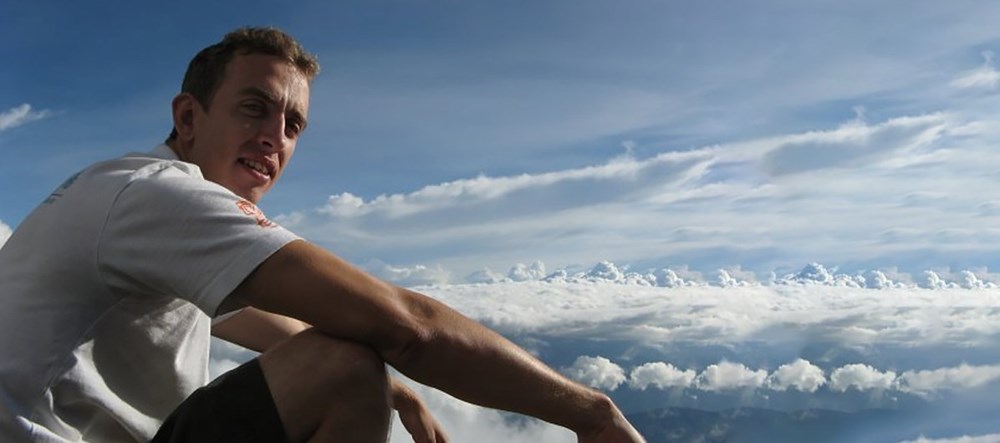Engineering projects in Africa
Engineers like Drew work in developing countries, helping generate local electricity, creating access to clean water, developing basic transport and more. Find out how Drew uses his knowledge and practical engineering skills to bring power to the people of a remote village in Malawi…

A lot of the things you do every day need power: reading this webpage on your phone or computer, turning on the lights when it gets dark, heating your house or cooking your dinner.
But not everybody in the world has easy access to electricity and many of the other things we take for granted. Engineering can help people in isolated places around the world by creating practical solutions to help make lives easier.
Engineers like Drew work in developing countries, helping generate local electricity, creating access to clean water, developing basic transport, and more.
Read on to find out how Drew uses his knowledge and practical engineering skills to bring power to the people of a remote village in Malawi…
Name: Drew Corbyn
Age: 31
Job title: Energy Consultant
Qualifications: MEng Mechanical Engineering, the University of Nottingham
Employer: Practical Action Consulting
Where you live: Blantyre, Malawi
Tell us about your job - what do you do?
I manage a project installing small hydro-electric power plants in remote villages in Malawi. The technology works by diverting water from a river falling steeply down the mountain, along a canal and through a turbine that connects to a generator. The electricity is then distributed on power lines to houses, businesses, schools and clinics in the village.
Schemes like this are far from the national grid; without hydro-power people are forced to use poor quality and expensive alternatives to electricity, such as diesel generators and paraffin lamps.
I work with a Malawian engineer, the local staff and people from the villages on the engineering, procurement and construction of the plants. We are working with a Malawian company that will operate the systems and sell electricity to customers.
What does an average day look like for you?
My favourite days at work are when I visit the village to assess the progress of the construction, although this is only once a month or so. It’s interesting to see the scheme being built and work with the community who will be using the electricity.
An average day is spent in the office though. The project manager is responsible for establishing plans and monitoring progress and looking after the project funds. There are a lot of meetings with the project engineer and Skype meetings with the management team in Zimbabwe. There is also co-ordination with other stakeholders such as the government regulator and the project donor.
How does your work affect people’s lives?
The supply of electricity is a big improvement for customers who previously had to rely on torches or paraffin lamps for lighting. Charging a mobile phone often meant a five mile walk into town. Businesses in the village are able to use electric appliances to enable new activities such as carpentry, milling and selling cold drinks. The school and clinic find it easier to attract staff and can improve the quality and range of services they deliver. It’s rewarding to see how technology can transform people’s lives.
How did you first become interested in engineering?
I became interested in engineering through concerns about the environment and climate change. Renewable energy technologies and sustainability issues attracted me to the field of engineering.
There are a number of different routes you can take into a career in engineering. What route did you take and why?
After college, I went to the University of Nottingham and studied Mechanical Engineering. I was strong at maths and physics, and art and design, which quite naturally led into studying engineering. After graduating from Nottingham I volunteered as an engineer in the Philippines and then Nepal through the student-led organization, Engineers Without Borders (EWB). The volunteer placements allowed me to combine my love for travel with my desire to gain practical experience as an engineer.
How important was studying maths and science in school for what you do now?
So much of the work I do requires a strong basis in maths and science. Whether I’m surveying potential customers, producing engineering designs or financial management, being confident and able with maths and science is essential.
What do you like most about engineering?
I enjoy the creative element of engineering. Having the skills to build, manufacture or produce things is exciting.
What do you like to do in your spare time?
I love to spend my spare time outdoors: trekking in the mountains, rock climbing, mountain biking and just about anything else. I enjoy visiting new places and experiencing different cultures.
What personal qualities are important for being an engineer?
Being innovative, analytical, rigorous, responsible, communicative, and quality-driven.
If you could go back in time and invent anything, what would it be?
The solar panel.
What advice would you give a young person who was considering engineering as a future career?
Get involved with student organisations such as Engineers Without Borders, and take any opportunity to get hands-on experience with different technologies.
Find out more about Practical Action here
Find out about studying engineering at Nottingham University here